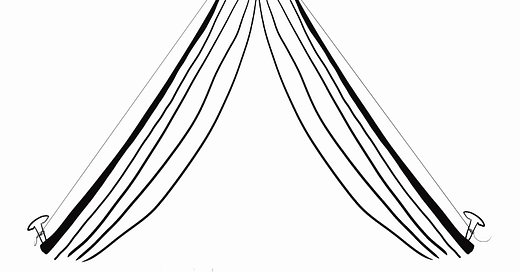Hello, friends. And welcome to Day 2 of ‘Let’s Get Writing’ Camp—I’m really glad you’re here.
Yesterday, we eased into our writing projects by taking a couple of gentle first steps. Today, we’re going to build on that, which will help us rebuild our writing practice.
What Day 2 is all about
On this second day of Writing Camp, we’re going to focus on taking that crucial second step that turns a single day of writing into the beginning of an actual writing practice. Remember: we’re not here to finish anything this week. Our goal is just to remember how to keep writing when we really don’t feel like we can.
Where are we, anyway?
Let’s start by reminding ourselves of what we’re working on this week. So, if you’re feeling a little overwhelmed by the very idea of sitting down to write, take out those notes you wrote at the beginning of yesterday’s session to remind yourself of which project you’re trying to work on this week.
Next, reflect on what small part of that larger project you feel up to working on today. Again, remember that this is not about finishing. Just choose something that feels most manageable or most interesting to you, and write it down. That’s what you’ll chip away at today. If that’s simply returning to what you were chipping away at yesterday, that’s absolutely fine.
Day 2 Writing Prompts
Pick whichever one feels right for you today.
Option 1: Freewriting
If you didn’t try producing a freewritten description of your daily task on Day 1, I encourage you to try it today.
If you did the freewritten description of your daily task yesterday and want to do more freewriting today, let’s try something a little different. Look at the task you want to chip away at today. Then set a timer for 5 minutes and freewrite about whatever aspect of that goal comes to mind—it could be your own sense of where you’re heading, your thesis statement, a particular character, an image, a word. Do not stop. Do not look back. Do not worry at all about using perfect punctuation or sentence structure. Just empty your brain onto the page.
You can either make this your writing stint for today, or—if you feel up to doing more—you can use this exercise to jump-start more writing.
If you feel like you need to break up your writing day into different stints, you can (a) set yourself a goal for your next writing stint today (e.g. set a timer for 20 minutes, or set a goal of writing at least 200 more words) and/or (b) try out Option 2 below.
Option 2: Directed prompt
Yesterday’s prompt was about reminding yourself of the larger writing goal you’re working towards. Today, let’s think about the connections.
Take 10 minutes and write about what connects your writing task for Day 1 to your writing task for Day 2. This could involve, for example, actually writing out the transition itself (e.g. a short paragraph or scene that connects the two tasks), or it might involve writing a short explanation of some sort (e.g. something for your reference only, or something that would help a reader/editor understand what holds the two tasks together).
Then give yourself 5 minutes to see whether you can produce anything that chips away at today’s goal, even if it’s only a single sentence.
If that’s enough for today, then go ahead and stop. But if you feel like you’re on the verge of building up some momentum, then try setting a timer for 10 minutes and keep going.
If that feels like enough for today, that’s great. If you feel like you want to keep going, try setting a timer for 20 minutes and see what you can produce in that time.
Option 3: You do you
If you’re at Writing Camp for the camaraderie and support rather than the prompts, that’s great! Do your own thing, and let us know about it—and about how you’re doing—in the chat.
Ok, folks: time to write. Just remember: go gently today.
I’ll see you tomorrow for Day 3 of Writing Camp!
As ever, thanks for reading. This is a reader-supported publication, and the best way to support it is to become a paid subscriber (either at $5 per month or $50 per year). Paid subscribers can access everything on the site, from the archives to the ‘Things That Worked’ sample materials.
If you’re really feeling generous, and you’d like access to everything above and regular feedback on your own writing whenever you need it, you can become a Founding Member ($150).
VB,
M




